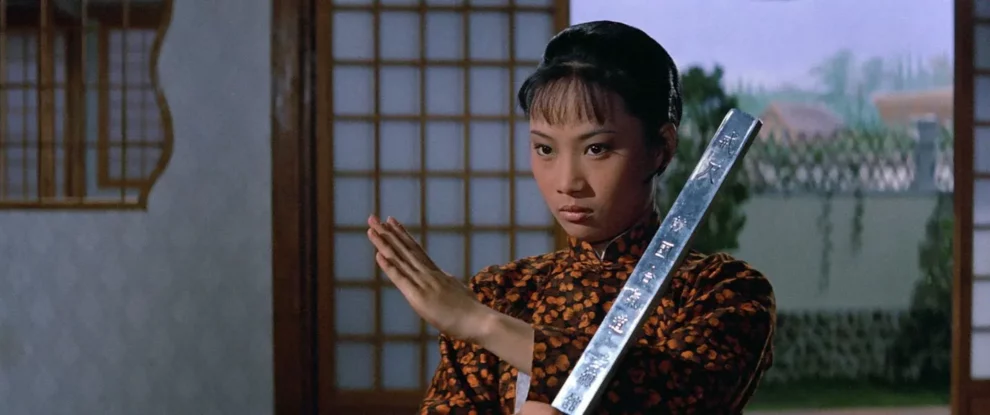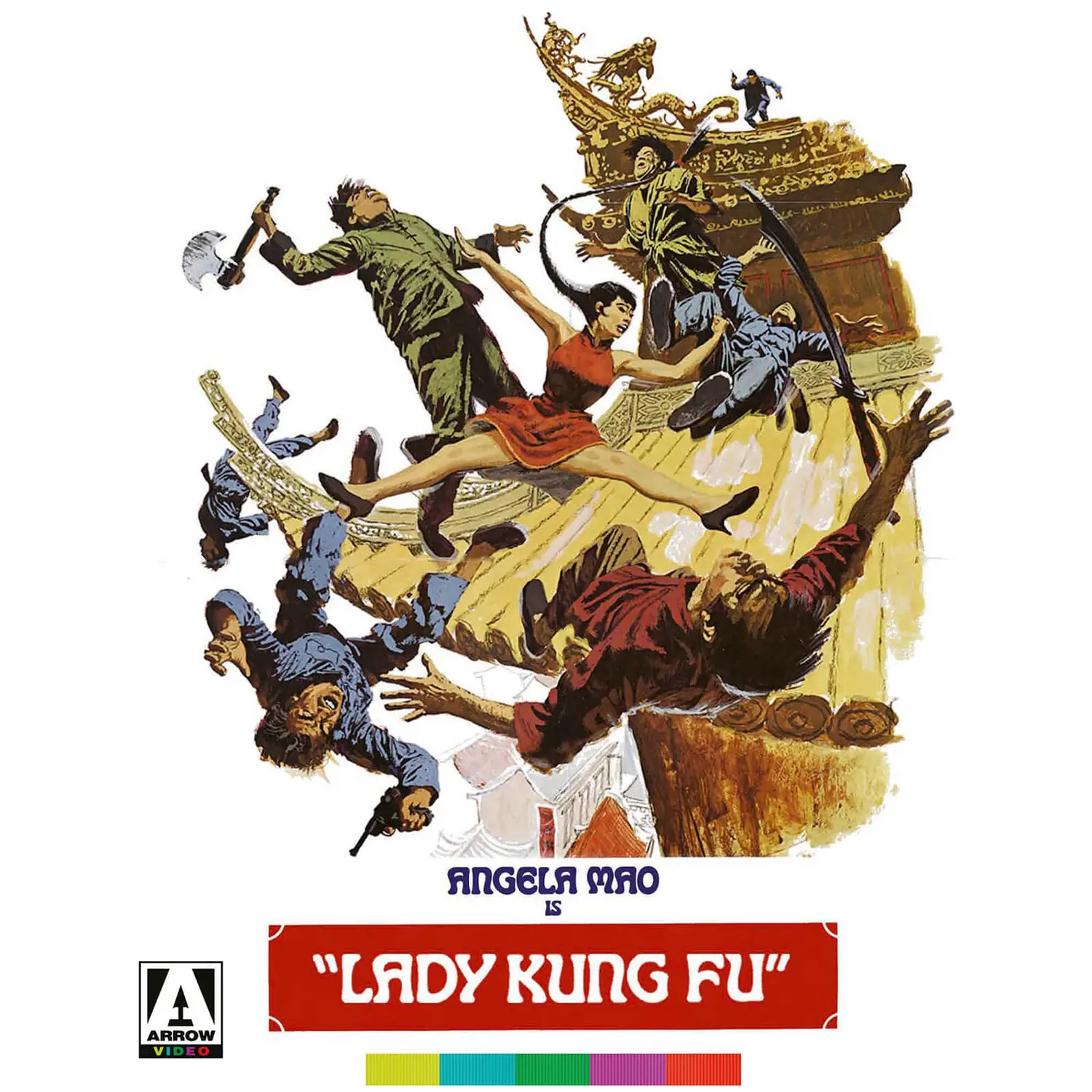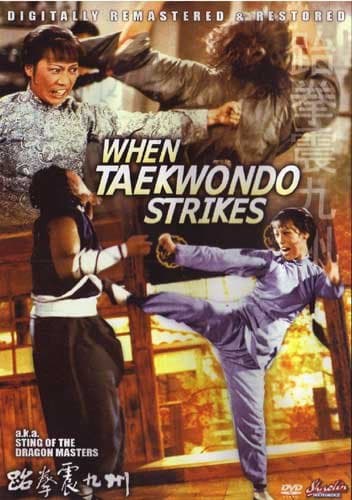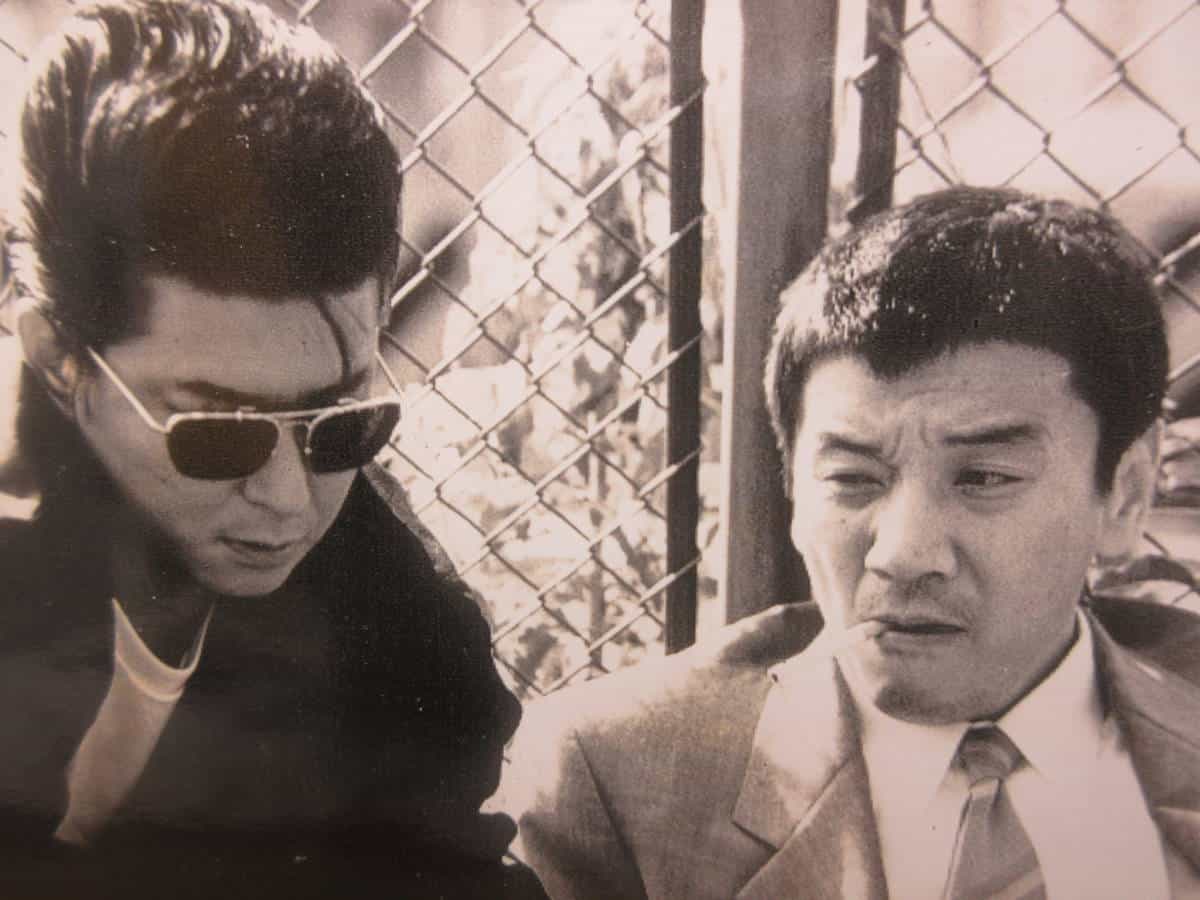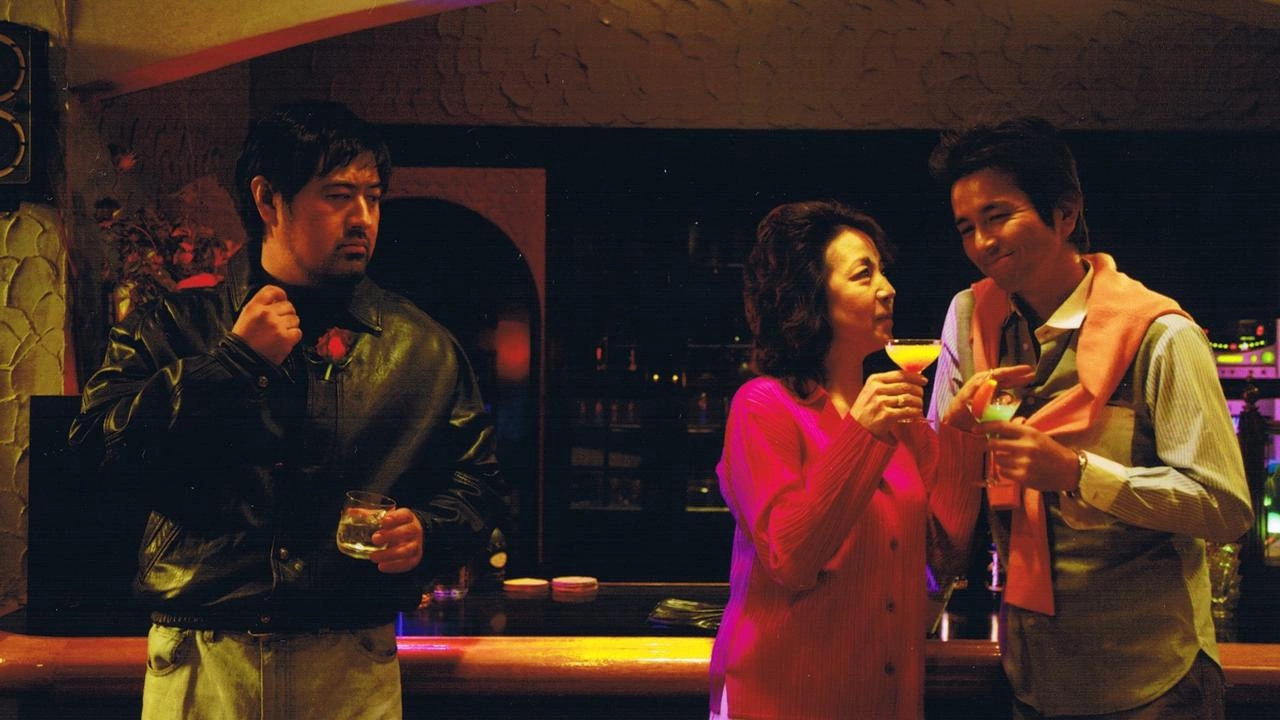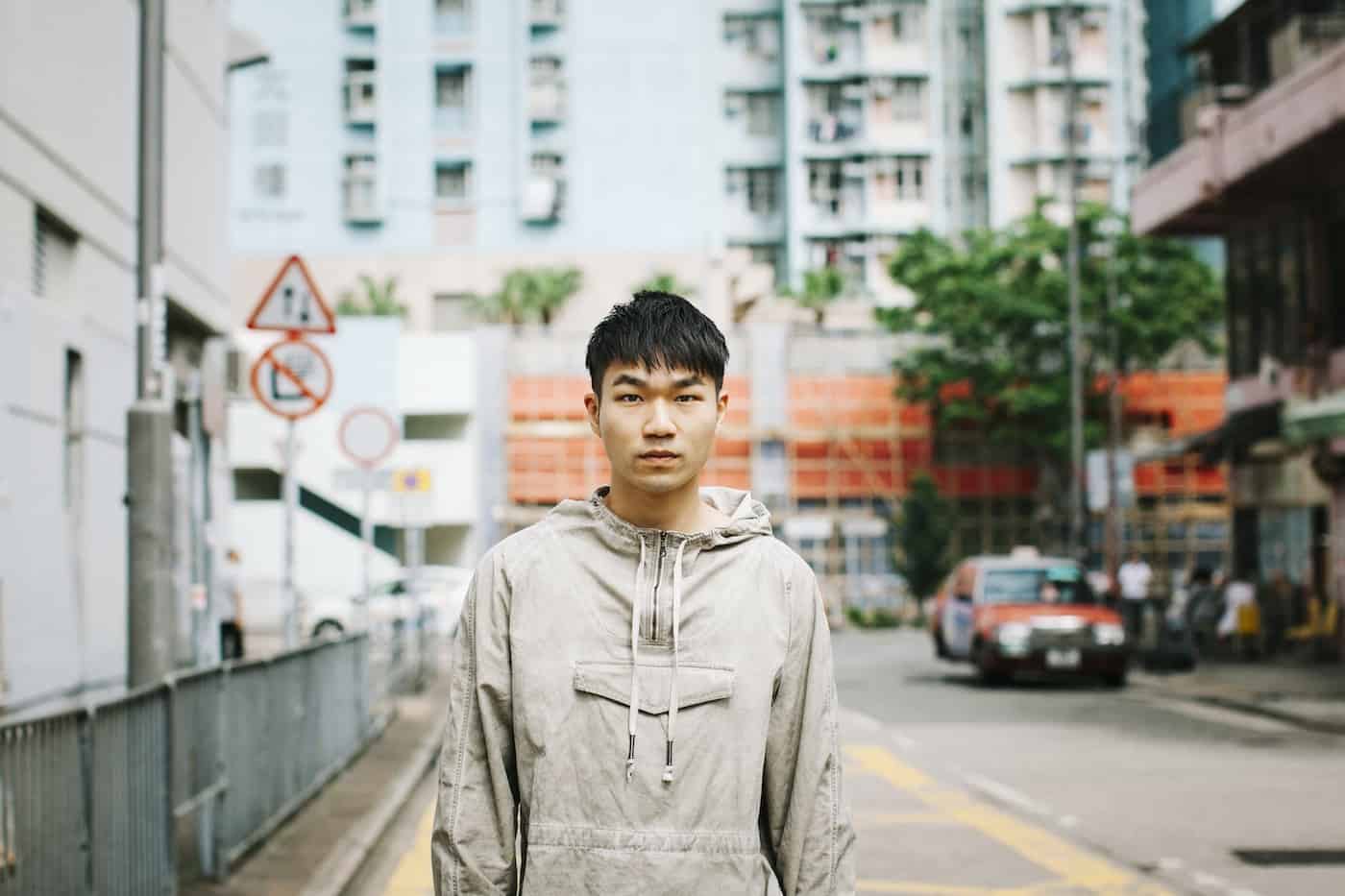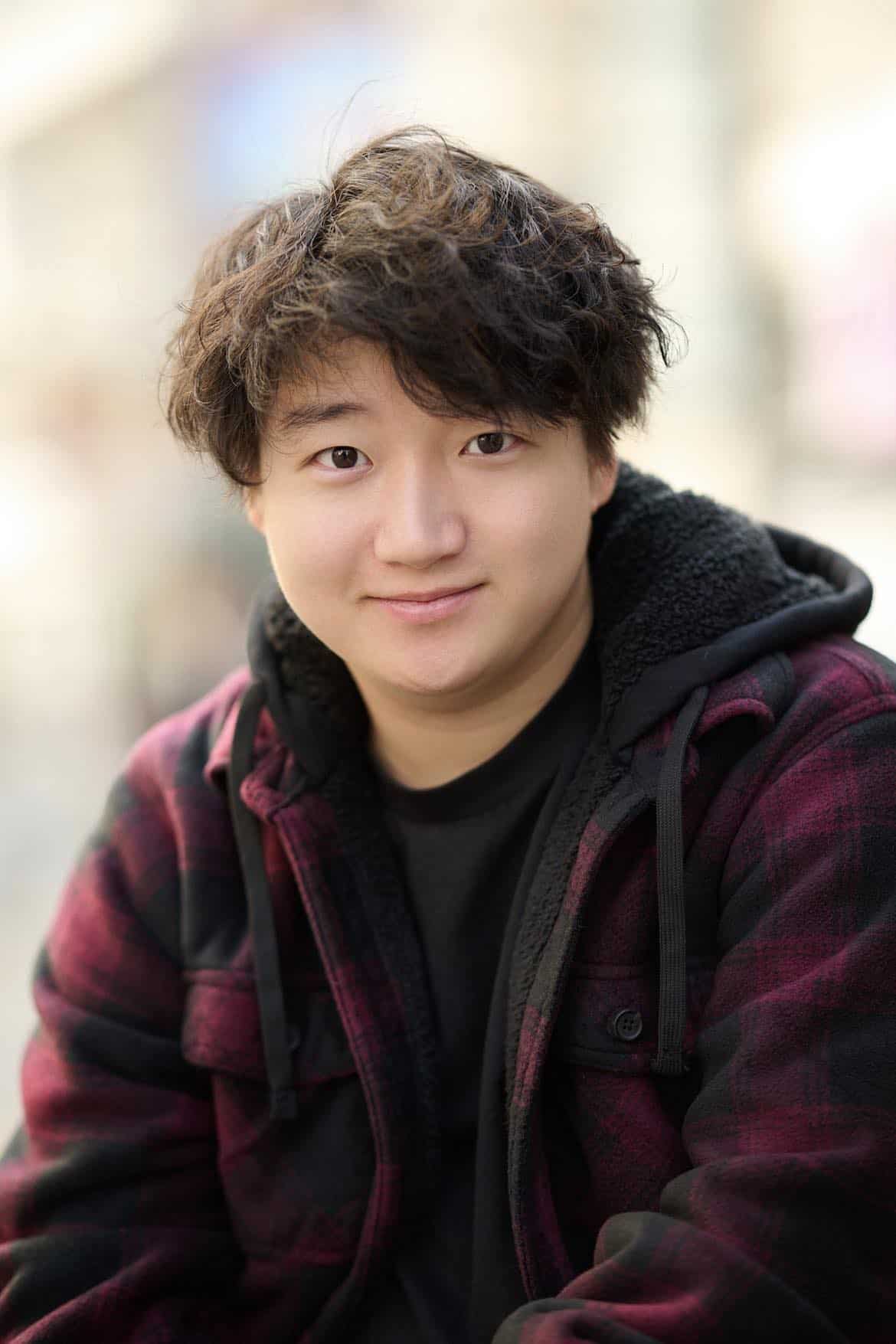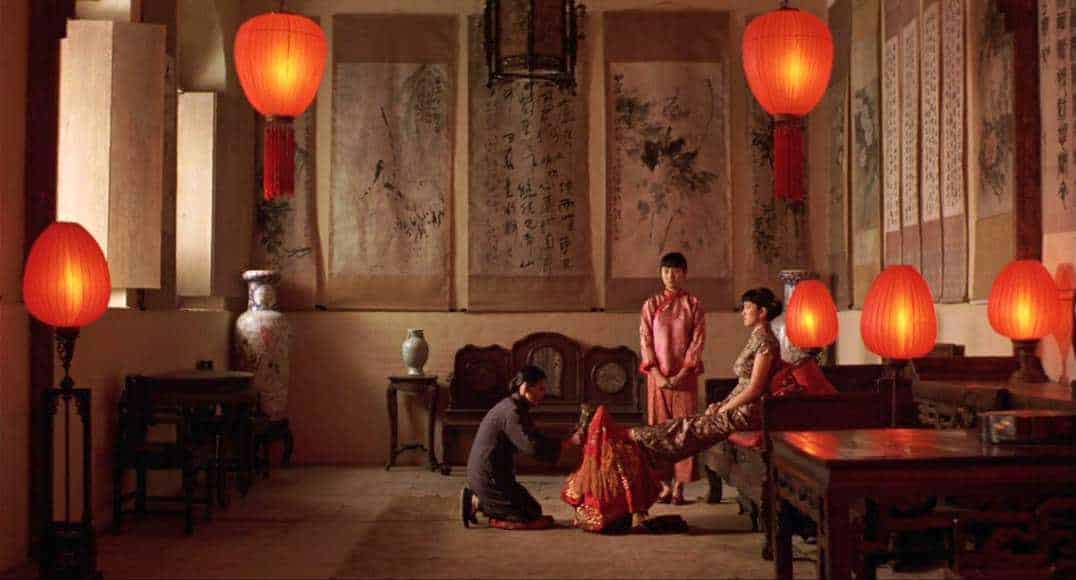In 1970, prominent Hong Kong producers Raymond Chow and Leonard Ho left the legendary Shaw Brothers studio to found the now iconic Golden Harvest. The new studio would grow to dominate the Hong Kong film landscape for the next thirty years, overseeing the rise of Jackie Chan, Sammo Hung, and, of course, the immortal Bruce Lee.
Alongside these male superstars emerged another kung fu hero who has built a lasting cinematic legacy of her own – Angela Mao. Mao starred in Golden Harvest's first feature production, the magical wuxia adventure film “The Angry River” (1971). The film was helmed by the debuting director, Huang Feng, marking the first of nine successful collaborations between Feng and Mao.
Below are listed five of Feng and Mao's most electrifying joint projects, ranging from the bizarre to the brutal:
1. Lady Whirlwind (1972)
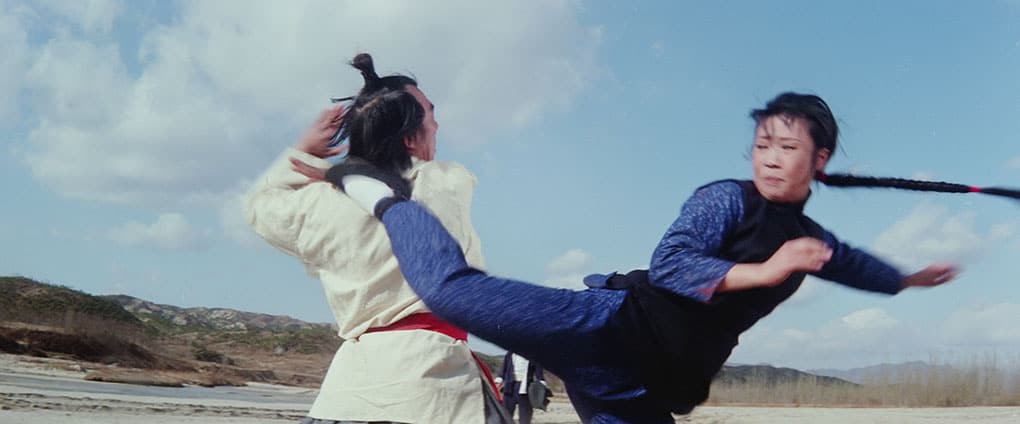
In her second feature with Feng, Mao's Tien Li-Chun is out to avenge her sister, but revenge doesn't play out in a typical fashion. Upon finding her target, Chang Yi's Ling Shi-Hao, Tien agrees to help him take down his enemies so that she can save the pleasure of killing him for herself. As the narrative progresses, Ling becomes the hero of the tale, as he and Tien agree to put their quarrel on hold until Pai Ying's Japanese antagonist is defeated.
“Lady Whirlwind” starts with a bang as Mao announces herself with style, trashing a casino in a blistering opening battle. Feng shows his early skill as an action director through several breathless fight sequences that are wonderfully choreographed. The cliffside showdown during the finale and a brawl at an old temple are particularly cinematic. Despite adopting the bizarre title “Deep Thrust” in the USA, the film was a success in the West for both Feng and Mao, setting the benchmark for their future collaborations.
Buy This Title From Arrow by clicking on the image below (use code ASIANMOVIEPULSE for 5% off)
2. Hapkido (1972)
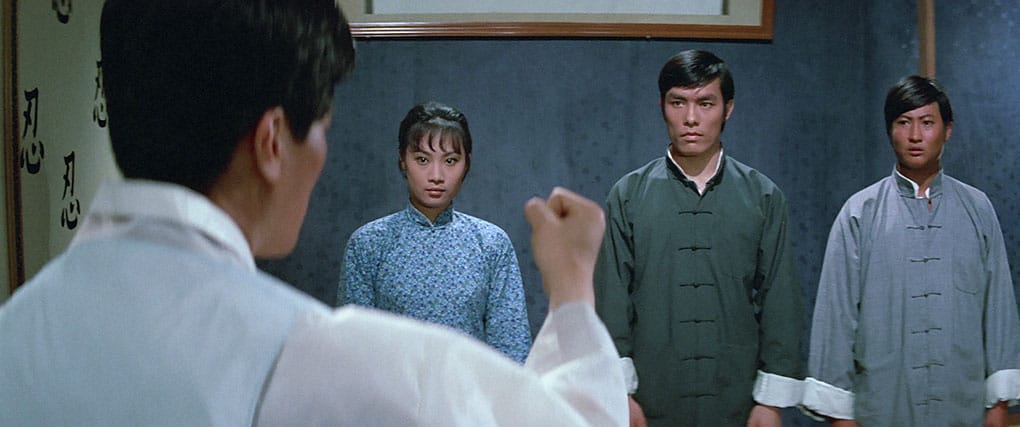
“Hapkido” is possibly Angela Mao's most widely acclaimed film, and upon viewing, it's easy to see why. Mao, along with fellow Hong Kong kung fu stars Sammo Hung and Carter Wong, finds herself at war with a Japanese dojo that opposes their teaching of the Korean martial art of hapkido. Frequent and enthralling fight sequences are littered throughout, keeping you engaged in the action and narrative. While Mao is undoubtedly the star of the show, Hung and Wong both put in stellar performances tinged with humour.
As is the case with many of Mao's projects with Huang Feng, her character takes a while to grow into the film before grabbing it by the balls and unleashing carnage. Never has an umbrella looked more threatening than when in the hands of the queen of kung fu herself. The most memorable sequence sees Mao single-handedly take down almost the entire Japanese dojo, dishing out cold vengeance whilst displaying intense composure. Of all Feng and Mao's collaborations, there's a case for “Hapkido” being the best of the bunch.
3. When Taekwondo Strikes (1973)
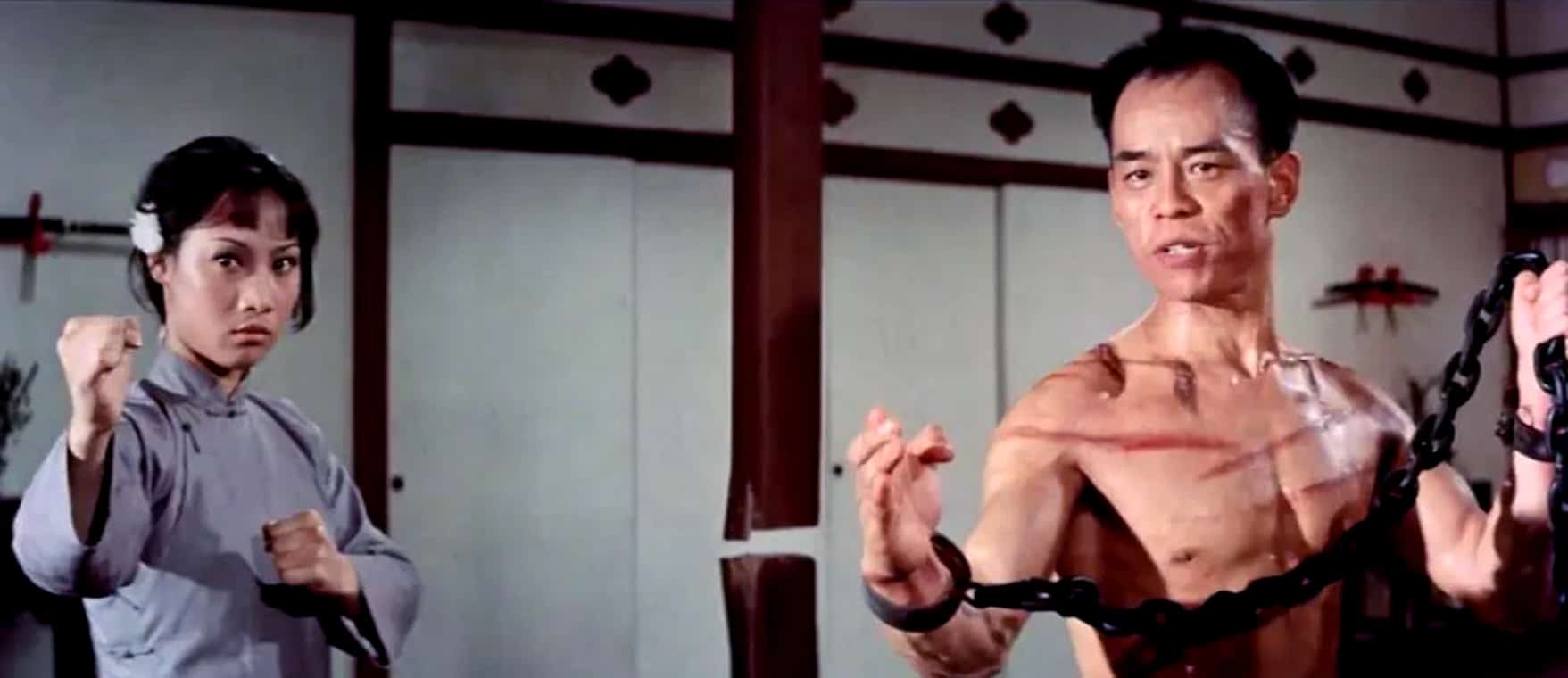
For Feng's fifth film with Mao, the pair join up with some formidable faces in the world of martial arts, with the most notable being Jhoon Ree. Making his only major on-screen appearance, made possible by none other than Bruce Lee, Ree puts in a wonderful performance as the leader of a resistance group opposed to the Japanese occupation of Korea. Alongside Mao, the pair face off against a bitterly evil Sammo Hung, who features as a ruthless secondary villain.
As well as showcasing her wonderful martial arts abilities, Mao shows off her acting chops here more than in any other feature directed by Feng. Her character deals with some troubling situations, requiring the actor to display a range of emotions not found in her prior films. In a project littered with talent, Mao is the stand-out performer, which speaks volumes about her presence as both a martial artist and an actor. While quite easily Feng's darkest collaboration with Mao, at least tonally, “When Taekwondo Strikes” is still a blast.
4. The Shrine of Ultimate Bliss (1974)
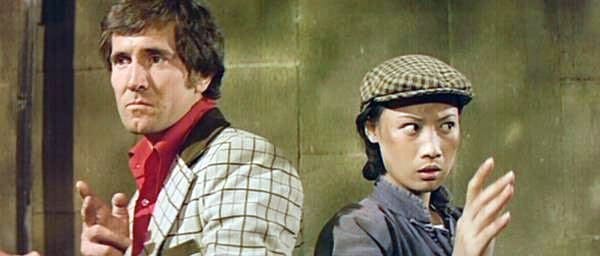
Feng's eleventh feature marks a change of pace for the director, as kung-fu takes a backseat in a film that is essentially an undercover spy thriller. Former James Bond actor George Lazenby plays the moustache-wearing Joshua Stoner, an Australian cop who is sent to investigate the source of a drug referred to only as ‘Happy Pills'. Mao's Li Shao Hu embarks on a similar mission, and the two eventually join forces to give us an unlikely but much-welcome Angela Mao x 007 team-up.
Despite Mao playing a significant role in the film, Lazenby steals the show here. One can't help but assume that Golden Harvest was keen on exploiting the actor's one-time Bond persona, which ends up working very nicely. Even the narrative leans on Bond, as our heroes look to uncover an international drug peddling ring operating out of a secret lair – complete with an ever-rotating desk of villainy. Aside from overly-long sexploitation detours, Feng delivers a thoroughly entertaining slice of kung fu espionage.
5. The Himalayan (1976)
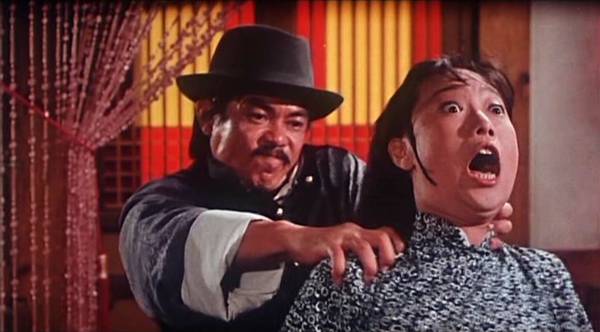
“The Himalayan” marked the last of Feng and Mao's work together at Golden Harvest, although the two would reunite one final time in the Graphic Films (H.K.) production, “Legendary Strike” (1978). While perhaps not having the strongest narrative, “The Himalayan” offers up one of the most memorable villains from Feng and Mao's collaborations, in the form of Chan Sing's Kao Chu. The dastardly baddie is cut-throat and commanding as he embarks on an elaborate ruse to snatch power from the Tseng family.
Mao's Tseng Ching Lan comes to prominence much later in the film, at first playing a supposedly hapless bride who's fallen prey to Kao's meddling. An escape to Tibetan ruins sees her learn a form of martial art that is unique to the region, a process that involves some rather distinct training techniques. Once again, it's the finale in which Feng shows his directorial prowess as he presents what is perhaps Mao's most intense fight sequence; her showdown with Kao Chu is pacey, brutal, and fraught with tension.


